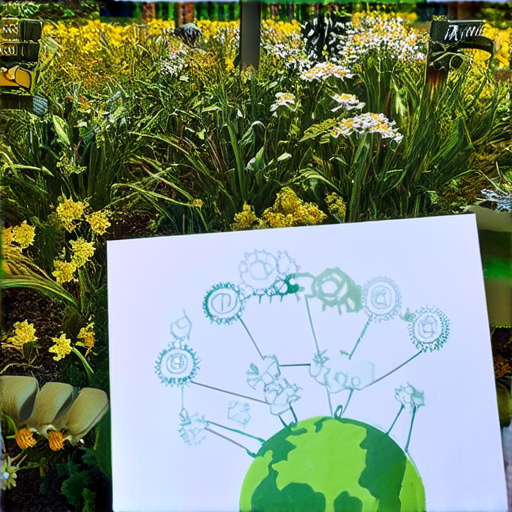Effective volunteer programs play a vital role in fostering a sense of community, promoting social responsibility, and driving positive change within organizations and society as a whole. By leveraging the collective efforts of dedicated individuals, companies can create meaningful experiences that benefit both volunteers and the greater good. From employee-led initiatives to corporate partnerships, well-designed volunteer programs can have a profound impact on local communities, drive business success, and contribute to a culture of philanthropy.
For those looking to establish or enhance their own volunteer programs, understanding the importance of collaboration, clear goals, and effective communication is crucial. By doing so, organizations can unlock the full potential of their volunteers, foster a sense of belonging, and create lasting relationships between employees, customers, and the wider community.
In this comprehensive guide, we’ll delve into the world of effective volunteer programs, exploring the benefits, best practices, and innovative strategies for creating and sustaining successful initiatives that drive real-world impact.

Building a Successful Volunteer Program
A well-designed volunteer program can have a profound impact on your organization, fostering community engagement, promoting social responsibility, and driving positive change.
Key Components of a Successful Volunteer Program
- Clear Goals and Objectives: Define the purpose, scope, and expected outcomes of your volunteer program to ensure everyone involved is aligned and working towards a common goal.
- Effective Recruitment Strategies: Utilize various channels, such as social media, local newspapers, and community outreach programs, to attract diverse volunteers who share your organization’s mission and values.
- Comprehensive Training and Support: Provide thorough orientation sessions, ongoing training, and access to resources to equip volunteers with the necessary skills and knowledge to excel in their roles.
- Meaningful Involvement Opportunities: Offer a variety of projects, events, and activities that cater to different interests and skill levels, allowing volunteers to contribute meaningfully and feel valued.
- Regular Feedback and Evaluation: Regularly solicit feedback from volunteers, monitor progress, and evaluate the effectiveness of your program to identify areas for improvement.
- Recognition and Appreciation: Express gratitude to volunteers through public recognition, rewards, or special events to demonstrate appreciation for their dedication and hard work.
Best Practices for Managing a Volunteer Program
- Establish Clear Communication Channels: Set up regular meetings, create a dedicated email address or online forum, and encourage open communication among volunteers, staff, and management.
- Develop a Volunteer Handbook: Create a comprehensive guide outlining policies, procedures, and expectations to ensure consistency and fairness across all aspects of the program.
- Foster a Positive Volunteer Culture: Encourage teamwork, collaboration, and mutual respect among volunteers to create a supportive and inclusive environment.
- Monitor Time Commitments and Availability: Track volunteer hours, manage scheduling conflicts, and adjust project assignments accordingly to ensure fair distribution of workload.
- Evaluate Program Impact and Effectiveness: Conduct regular assessments to measure the program’s success, identify areas for improvement, and inform future strategic decisions.
Strategies for Sustaining a Successful Volunteer Program
- Build Relationships and Trust: Develop strong relationships with volunteers, staff, and stakeholders to foster trust, loyalty, and long-term commitment.
- Offer Competitive Benefits and Perks: Consider offering benefits, discounts, or perks that appeal to volunteers, such as free parking, meals, or exclusive events.
- Celebrate Milestones and Successes: Organize special events, award ceremonies, or recognition programs to acknowledge volunteers’ achievements and celebrate milestones.
- Encourage Leadership Development: Identify and support volunteer leaders, provide training opportunities, and empower them to take on more responsibilities and drive program growth.
- Stay Adaptable and Responsive: Continuously monitor changing needs, preferences, and trends to adapt your program, stay relevant, and maintain its effectiveness.
Unlock Your Potential as a Volunteer
Effective volunteering requires a combination of passion, dedication, and strategic planning.
Set Clear Goals and Expectations
- Define your motivations: Identify why you want to volunteer and what you hope to achieve through your involvement.
- Assess your skills and interests: Consider how your skills and passions align with the organization’s needs and goals.
- Establish a routine: Commit to regular volunteering sessions and maintain a consistent schedule.
Develop Essential Skills
- Communication skills: Practice active listening, clarify expectations, and express yourself effectively.
- Time management: Prioritize tasks, manage your time efficiently, and meet deadlines.
- Teamwork and collaboration: Foster positive relationships with colleagues, respect diverse perspectives, and contribute to a cohesive team effort.
Stay Organized and Informed
- Research organizations: Explore various causes, evaluate their impact, and select those that align with your values and goals.
- Attend training sessions: Enhance your knowledge, gain new skills, and stay updated on best practices.
- Network with peers: Share experiences, exchange ideas, and learn from others in the volunteer community.
Make a Lasting Impact
- Be proactive: Take initiative, identify opportunities, and drive positive change.
- Evaluate progress: Assess the effectiveness of your efforts, gather feedback, and adjust your approach as needed.
- Celebrate successes: Acknowledge achievements, recognize contributions, and inspire others to follow suit.

Example Volunteer Programs
A volunteer program is a structured initiative that allows individuals to contribute their time, skills, and expertise to support a cause or organization.
- Healthcare Volunteer Programs: These programs enable volunteers to assist healthcare professionals, patients, and families in various settings, such as hospitals, clinics, and nursing homes.
- Nursing Home Volunteer Programs: Volunteers often provide companionship, emotional support, and assistance with daily activities for elderly residents.
- Hospice Volunteer Programs: Trained volunteers offer emotional support, companionship, and respite care to patients and their families during end-of-life care.
- Disaster Relief Volunteer Programs: Organizations rely on volunteers to provide essential services, such as food, shelter, and emotional support, to affected communities.
Types of Volunteer Roles:
Volunteers can participate in various roles, including:
- Administrative Assistants: Volunteers may help with tasks such as data entry, mailings, and fundraising events.
- Direct Caregivers: Volunteers may engage in hands-on caregiving, such as assisting with daily living activities, providing transportation, or offering emotional support.
- Event Coordinators: Volunteers may help plan, execute, and promote charity events, fundraisers, or campaigns.
Benefits of Volunteering:
Participating in a volunteer program offers numerous benefits, including:
- Personal Growth: Volunteering can enhance self-confidence, develop new skills, and foster personal growth.
- Networking Opportunities: Volunteers can connect with like-minded individuals, build relationships, and expand professional networks.
- Community Engagement: Volunteering enables individuals to contribute to their community, make a positive impact, and feel connected to their surroundings.

What Volunteer Work Looks Best
Volunteering can significantly enhance your professional profile, demonstrating valuable skills and character traits to potential employers. When selecting volunteer work, consider experiences that showcase leadership abilities, teamwork, and problem-solving skills.
Leadership Experience
- Coaching a sports team or leading a community organization demonstrates leadership skills and ability to manage teams.
- Running a committee or overseeing events showcases organizational and time management skills.
- Leading a project or initiative highlights strategic thinking and problem-solving abilities.
Transferable Skills
- Teaching literacy courses or tutoring students develops communication and interpersonal skills.
- Working with diverse groups, such as youth or seniors, enhances cultural competence and empathy.
- Managing budgets, coordinating logistics, or supervising volunteers demonstrates financial and administrative skills.
Relevant Industries
- Healthcare and medical organizations value volunteers who assist with patient care, administrative tasks, or fundraising efforts.
- Environmental organizations appreciate volunteers involved in conservation projects, wildlife preservation, or sustainability initiatives.
- Education institutions benefit from volunteers who teach classes, mentor students, or support educational programs.
Key Characteristics
- Proactivity and initiative demonstrate a willingness to take on challenges and responsibilities.
- Flexibility and adaptability showcase ability to adjust to changing circumstances.
- Strong communication and interpersonal skills highlight ability to build relationships and collaborate effectively.
By focusing on these aspects, you can select volunteer work that not only benefits the cause but also enhances your professional reputation and increases your chances of standing out on your resume.
Where Are Volunteers Most Needed?
Volunteering can have a profound impact on communities worldwide, addressing various social issues and supporting local causes. To identify areas where volunteers are most needed, consider the following regions and organizations:
- Disaster Relief: Organizations like the American Red Cross, Habitat for Humanity, and the Salvation Army often require volunteers to assist with disaster preparedness, response, and recovery efforts.
- Health and Human Services: Non-profits focused on healthcare, education, and social services frequently need volunteers to support programs such as food banks, homeless shelters, and after-school tutoring initiatives.
- Environmental Conservation: Groups dedicated to protecting wildlife habitats, promoting sustainability, and preserving natural resources often rely on volunteers to participate in clean-up events, tree planting, and conservation projects.
- Senior Support: Seniors and elderly individuals may benefit from volunteers who offer companionship, transportation assistance, and emotional support through programs like Meals on Wheels and senior centers.
- Education and Youth Development: Schools, libraries, and youth organizations frequently seek volunteers to mentor students, lead educational workshops, and support literacy programs.
Some notable organizations that consistently require volunteers across various locations include:
- The American Red Cross
- Habitat for Humanity
- The Salvation Army
- The Nature Conservancy
- The National Park Service
When searching for volunteer opportunities, consider factors such as location, cause, and time commitment to ensure alignment with personal interests and availability. By volunteering, individuals can contribute meaningfully to their communities and make a lasting impact.
Most Rewarding Volunteer Work
Engaging in meaningful volunteer work can bring numerous benefits, including personal growth, social connections, and a sense of fulfillment.
- Education and Tutoring: Working with students, especially those who require extra support, can be highly rewarding. Not only do you help shape young minds, but you also witness their progress and growth, which can be incredibly fulfilling.
- Animal Welfare and Conservation: Volunteering at animal shelters, wildlife sanctuaries, or conservation organizations allows you to contribute to the well-being of animals and the environment. This type of work often requires patience, empathy, and dedication, making it a deeply satisfying experience.
- Community Service and Disaster Relief: Participating in community service projects or disaster relief efforts demonstrates your commitment to helping others in need. These experiences can foster a sense of camaraderie among volunteers and create lasting bonds.
- Mentorship and Coaching: Sharing your expertise and guiding individuals towards their goals can be incredibly rewarding. Whether it’s through sports coaching, career counseling, or life skills mentoring, this type of volunteering enables you to make a positive impact on people’s lives.
- Environmental Sustainability: Contributing to environmental initiatives, such as park cleanups, tree planting, or sustainable agriculture projects, helps preserve our planet for future generations. This type of volunteering encourages a sense of responsibility and stewardship.
Ultimately, the most rewarding volunteer work is that which aligns with your passions, values, and interests. By finding activities that resonate with you, you’ll not only derive personal satisfaction but also make a tangible difference in the world around you.

0 Comments